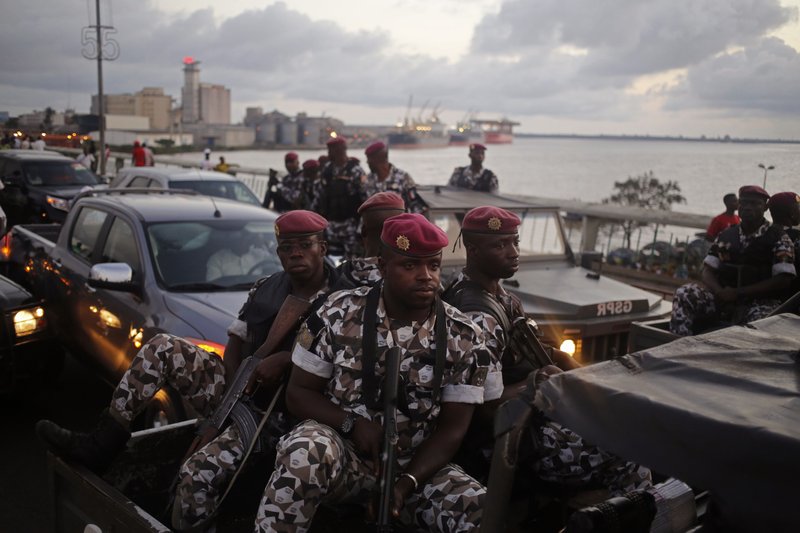ABIDJAN, Ivory Coast -- Ivory Coast's president said a deal was reached Saturday to end a two-day army mutiny that renewed security concerns in the Africa's fastest-growing economy.
President Alassane Ouattara made the announcement during a Cabinet meeting Saturday evening. Earlier in the day, his defense minister, Alain-Richard Donwahi, led a delegation to negotiate with disgruntled soldiers in the country's second-largest city, Bouake, where the mutiny began Friday morning.
But in an early sign not everyone was on board, mutineers in Bouake fired Kalashnikov rifles and other weapons again after Ouattara's announcement, trapping Donwahi in the home of an official along with other members of his delegation and journalists.
The group was finally able to leave just before 10 p.m., said one of those trapped, Aboubacar Al Syddick, a journalist for the newspaper L'Intelligent d'Abidjan. The Defense Ministry then released a statement denying Donwahi had been held against his will, saying he was merely continuing negotiations.
In his announcement, Ouattara said he was willing to take into account soldiers' demands for more money and an improvement in their living and working conditions, but he criticized the mutineers' tactics.
Ouattara came to power in 2011 after a postelection crisis that claimed more than 3,000 lives. The crisis was triggered by former President Laurent Gbagbo's refusal to accept defeat and step down. It capped more than a decade of turmoil that began with the country's first coup in 1999.
The new president faced enormous challenges in trying to create a unified army. Analysts had predicted that the government would offer payoffs to defuse last week's crisis, as it did when soldiers staged a similar revolt in 2014.
The details of the deal were not immediately available, and representatives for the mutiny's leaders could not be reached.
Despite the apparent quick resolution, the mutiny points to lingering problems with Ivory Coast's recovery, said Cynthia Ohayon, West Africa analyst for the International Crisis Group.
"This is another reminder that the long-standing issues that led to the crisis are still unresolved," she said.
For most of Saturday, the mutiny appeared to be gaining momentum.
Heavy gunfire broke out at a military camp in Abidjan, Ivory Coast's largest city, and barricades were erected in the city center as unconfirmed reports surfaced that mutinous soldiers had reached the military headquarters and Defense Ministry.
Information for this article was contributed by Hilaire Zon of The Associated Press.
A Section on 01/08/2017

